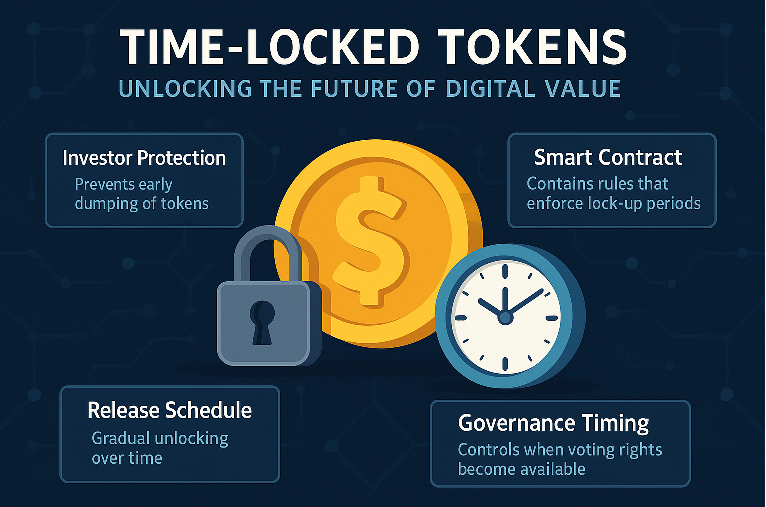Understanding Chainlink: The Basics
Chainlink is a decentralized oracle network that plays a pivotal role in the world of smart contracts. Introduced in 2017 by Sergey Nazarov and Steve Ellis, Chainlink bridges the gap between blockchain technology and real-world data. This article delves into the intricacies of Chainlink, exploring how it functions, its impact on the blockchain ecosystem, and its potential future.
What is Chainlink?
Chainlink is essentially a decentralized network of oracles. Oracles are third-party services that fetch external data and deliver it to smart contracts running on blockchain platforms. This functionality is crucial because blockchains themselves cannot access data outside their network. Without oracles, smart contracts would be confined to data available only within the blockchain, severely limiting their utility.
Chainlink’s decentralized nature ensures that the data provided by oracles is reliable and tamper-proof. It uses multiple nodes to retrieve and validate data, reducing the risk of single points of failure and ensuring data integrity. This decentralized approach makes Chainlink a trustworthy intermediary in the execution of smart contracts.
How Chainlink Works
Chainlink operates through a series of smart contracts on the Ethereum blockchain. These contracts manage the interactions between the data requestor (the entity needing data) and the data provider (the oracle). The process involves several key steps:
- Data Request: A smart contract requests specific data.
- Service Agreement: Chainlink creates a service agreement between the requestor and the oracles, detailing the data requirements and payment terms.
- Data Collection: The oracles fetch the requested data from external sources.
- Data Aggregation: The fetched data is validated and aggregated by multiple oracles to ensure accuracy and reliability.
- Data Delivery: The aggregated data is delivered back to the requesting smart contract.
This process ensures that the data received by smart contracts is both accurate and secure, enabling more complex and reliable decentralized applications (dApps).
Chainlink’s Impact on Blockchain Technology
Enhancing Smart Contract Functionality
Chainlink significantly enhances the functionality of smart contracts by providing access to real-world data. This capability expands the potential use cases for smart contracts, enabling them to interact with events and data outside the blockchain. For instance, decentralized finance (DeFi) applications can use Chainlink to fetch real-time price data for assets, facilitating functions like lending, borrowing, and trading.
Boosting Security and Trust
The decentralized nature of Chainlink’s oracles increases the security and trustworthiness of the data provided. Traditional centralized oracles pose a risk of manipulation and single points of failure. Chainlink mitigates these risks by using multiple oracles and a consensus mechanism to verify data, ensuring that the information delivered to smart contracts is accurate and tamper-proof.
Enabling Cross-Chain Interoperability
Chainlink also plays a vital role in enabling cross-chain interoperability. By providing a reliable way to transfer data between different blockchain networks, Chainlink facilitates communication and interaction among disparate blockchain ecosystems. This interoperability is crucial for the growth and integration of the broader blockchain space, allowing various platforms to leverage each other’s strengths.
Chainlink in Real-World Applications
Decentralized Finance (DeFi)
One of the most prominent applications of Chainlink is in the DeFi sector. DeFi platforms rely heavily on accurate and timely data to function correctly. Chainlink’s oracles provide these platforms with real-time price feeds, enabling various financial services such as loans, derivatives, and insurance. For example, Aave, a popular DeFi lending platform, uses Chainlink’s oracles to determine the value of collateral and manage liquidations.
Insurance
The insurance industry is another sector that benefits from Chainlink’s capabilities. Smart contracts can automate and streamline the claims process, but they require accurate data to function correctly. Chainlink provides the necessary data, such as weather conditions for crop insurance or flight delays for travel insurance, ensuring that claims are processed fairly and efficiently.
Gaming and NFTs
Chainlink is also making waves in the gaming and non-fungible token (NFT) spaces. In blockchain-based games, Chainlink can provide random number generation (RNG) services to ensure fair outcomes. For NFTs, Chainlink can verify the provenance and authenticity of digital assets, adding an extra layer of security and trust to the marketplace.
The Future of Chainlink
Continued Adoption and Integration
As blockchain technology continues to evolve, the demand for reliable and secure data feeds will only grow. Chainlink is well-positioned to meet this demand, with an increasing number of projects integrating its oracles into their platforms. The continuous improvement and expansion of the Chainlink network will likely drive further adoption and innovation in the blockchain space.
Expanding Beyond Ethereum
While Chainlink initially launched on the Ethereum blockchain, it has since expanded to support other blockchain networks. This cross-chain capability is crucial for the future of blockchain interoperability, allowing Chainlink to serve as a bridge between different ecosystems. As more blockchains adopt Chainlink, the potential for seamless cross-chain applications will increase.
Enhancing Decentralization and Security
Chainlink is committed to enhancing the decentralization and security of its network. The introduction of staking for LINK tokens, the native cryptocurrency of Chainlink, is a significant step in this direction. Staking incentivizes node operators to act honestly and reliably, further securing the network. Additionally, Chainlink continues to develop and implement advanced cryptographic techniques to enhance data security and privacy.
Conclusion
Chainlink has emerged as a cornerstone of the blockchain ecosystem, revolutionizing the way smart contracts interact with real-world data. By providing secure, reliable, and decentralized oracles, Chainlink enables a myriad of applications across various industries, from finance to gaming. As the blockchain space continues to grow and evolve, Chainlink’s role is set to become even more critical, driving innovation and expanding the possibilities of decentralized technologies. Whether you’re a developer, investor, or enthusiast, keeping an eye on Chainlink is essential as it continues to shape the future of blockchain technology.




















